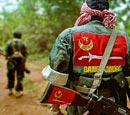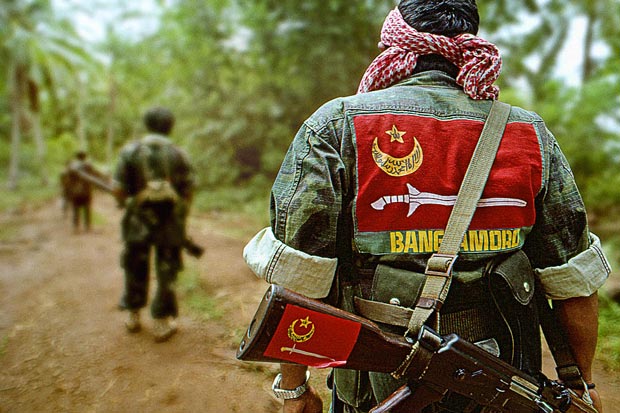ON MAY 2, 2011, international headlines reported the death of one of the world’s most wanted terrorists. “Justice has been done,” US President Barack Obama declared with tenacity as he announced the news.
World reaction was quick: relief, jubilation, pessimism—but also dread for those who feared of reprisals.
In the Philippines, just like in countries facing problems of Islamic extremism, this dread permeated discussions of the killing.
With terrorist groups such as Abu Sayyaf operating in Mindanao, the public’s attention soon turned towards how the global terrorist leader’s death would impact the country.
Terrorism defined
“Terrorism, according to the dominant narrative, is described as something evil… [It is described as] a form of violent action that is senseless,” Arjan Aguirre of the Political Science Department says.
He explains that terrorism had been used strategically and systematically back in ancient times, but has been “bastardized” in this regard today.
Al-Qaida’s mass murder of thousands or Bin Laden’s brutality has no excuses, regardless of any objectives such extremism is meant to achieve. However, the celebrations across America following Bin Laden’s death betrays the larger society’s shallow understanding of terrorism.
For many Americans, the celebrations marked their country’s vengeance in the name of Ground Zero’s dead. The complexity of the matter, however, may prove these festivities reckless and premature.
Bin Laden’s death is more than just about the 9/11 attacks—or any single terrorist act.
Deeper roots
Bin Laden’s death and the fallout it generated reminded the world of the ultimate roots of terrorism: the clashing socio-political interests that remain unresolved. In fact, with the relentless threats of reprisals, one is forced to wonder whether Bin Laden’s death was even relevant in the greater effort against terrorism. True, the leader had been killed, but the motives that pushed him to murder and destroy in the first place still exist.
“What the dominant thinking is trying to say is that [terrorism] doesn’t have any reasons to make use of violence, to make use of fear,” Aguirre explains.
The dominant thinking Aguirre is talking about may actually be the biggest obstacle in defeating terrorism—the insistence that terrorism is pure senselessness, and the refusal to acknowledge that deeper realities make and mold men like Bin Laden.
Catch-all retort
Apart from terrorist groups, revolutionary groups also instigate fear within societies. Despite the similarity in this respect, there’s a clear line separating the two: terrorist groups, such as the Abu Sayyaf and Al-Qaida, recognize no authority and do not conform to any laws on human rights, while revolutionary groups, such as the Moro Islamic Liberation Front (MILF) and the Communist Party of the Philippines (CPP), formally adhere to international humanitarian law and international standards of the conduct of war.
That’s partly why the government formally recognizes the MILF and the CPP as legitimate entities through peace negotiations, while pursuing an all-out war policy against the Abu Sayyaf.
The failure to make this distinction is what makes the American soldiers’ presence in Mindanao questionable. In these occasions, America can just so easily cite such use of force as a terroristic act, and, without question, crush everything connected to it—even the inherent and possibly principled reasons behind it.
Such reasons may have given birth to some terrorists, but these may also be the very reasons sincerely held by revolutionaries waging a war of self-determination, or even by mere civilians aspiring for social change. When terrorism is used as a catch-all retort to any kind of opposition to the status quo, even legitimate struggles can be unfairly crushed in an instant.
This is precisely the challenge of MILF and other such groups with regards to America. While the said Moro war for self-determination is supposedly a domestic concern, America grants itself the right to intervene because it can easily cite any act of force as an act of terror, and therefore—in keeping with its global War on Terror—present itself as hero who can help the government combat armed insurgents.
“[The situation in Mindanao] gave the United States of America an opportunity to reassert its importance,” Aguirre says. For him, this only worsened the problem as more instances of terrorism continued to occur.
Latent harms
Despite the persistent battles in Mindanao, the entire country has so far been spared from a terrorist attack of 9/11 proportions. While it is easy to be glad about this fact, it is not always so obvious that terrorism continues to profoundly affect lives.
Society seems to not have noticed, but it is providing itself greater burdens by thoughtlessly condemning terrorism’s destruction, without attempting to understand the roots of its existence.





